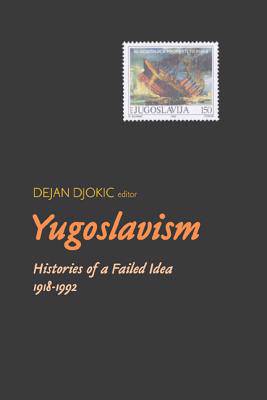
- Afhalen na 1 uur in een winkel met voorraad
- Gratis thuislevering in België vanaf € 30
- Ruim aanbod met 7 miljoen producten
- Afhalen na 1 uur in een winkel met voorraad
- Gratis thuislevering in België vanaf € 30
- Ruim aanbod met 7 miljoen producten
Zoeken
€ 32,95
+ 65 punten
Omschrijving
This volume explores historical, political, social, diplomatic, and economic aspects of the Yugoslav idea--"Yugoslavism"--between the creation of the nation in 1918 and its dissolution in the early 1990s. The key theme that emerges is that Yugoslavism was a fluid concept, understood differently at different times by various leaders, social groups, and the member states that comprised Yugoslavia. There never was a single definition of who and what was (or was not) "Yugoslav," and this contributed to the ultimate failure of the Yugoslav idea and the Yugoslav state. These essays, by scholars from the former Yugoslavia and from the West, look at the interplay of the states and peoples of Yugoslavia and at the roles played by intellectuals, leaders, and institutions, both secular and religious.
Specificaties
Betrokkenen
- Auteur(s):
- Uitgeverij:
Inhoud
- Aantal bladzijden:
- 368
- Taal:
- Engels
Eigenschappen
- Productcode (EAN):
- 9780299186142
- Verschijningsdatum:
- 15/05/1995
- Uitvoering:
- Paperback
- Formaat:
- Trade paperback (VS)
- Afmetingen:
- 136 mm x 219 mm
- Gewicht:
- 503 g

Alleen bij Standaard Boekhandel
+ 65 punten op je klantenkaart van Standaard Boekhandel
Beoordelingen
We publiceren alleen reviews die voldoen aan de voorwaarden voor reviews. Bekijk onze voorwaarden voor reviews.











